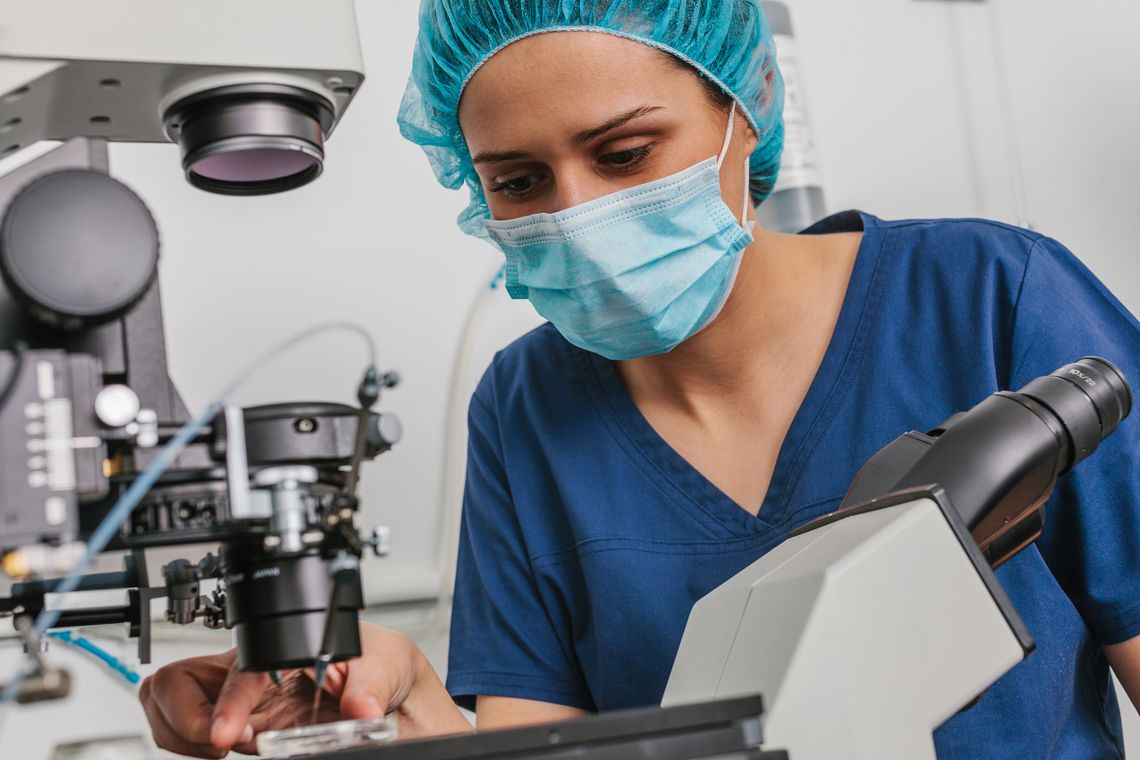PRÉSERVATION
DE LA FERTILITÉ
POUR RAISON MÉDICALE
La cryoconservation est une solution à envisager si vous vous préparez à recevoir des traitements médicaux pouvant avoir un impact sur la fertilité, tels que la radiothérapie, la chimiothérapie ou les procédures d’affirmation de genre. La préservation de la fertilité vous permet de congeler vos ovules, spermatozoïdes ou embryons en vue de les utiliser pour fonder ou agrandir votre famille ultérieurement.
Pourquoi choisir la préservation de la fertilité?

Pour des raisons personnelles
La cryoconservation ou congélation d’ovules est une pratique commune qui peut se faire pour toutes sortes de raisons. Souvent, c’est une façon de s’offrir plus de liberté dans la planification de son avenir.
Pour des raisons médicales
La préservation de la fertilité peut aussi être une solution à envisager si vous vous préparez à recevoir des traitements médicaux pouvant avoir un impact sur la fertilité, tels que la radiothérapie, la chimiothérapie ou les procédures d’affirmation de genre.


La congélation d’ovules
La congélation d’ovules consiste à prélever des ovules et à les congeler en vue de leur utilisation éventuelle. Il s’agit d’une pratique couramment utilisée avant toute intervention ayant un impact sur la fertilité, comme la chirurgie ovarienne ou la chimiothérapie. Vous pouvez aussi choisir de recourir à la congélation d’ovules facultative pour des raisons personnelles, afin de préserver votre fertilité dans le but de fonder ou d’agrandir votre famille ultérieurement.
Cryoconservation du sperme
Les hommes et personnes de sexe masculin peuvent choisir de congeler leur sperme afin de pallier un problème de fertilité éventuel. Nous recommandons aussi la congélation du sperme aux personnes qui souhaitent entamer un processus de FIV+/ICSI, mais ne sont pas disponibles pour produire un échantillon de sperme le jour du prélèvement d’ovules ou dont le taux de spermatozoïdes (ou celui de leur partenaire) est faible.
Les spermatozoïdes cryoconservés peuvent généralement être préservés pendant plusieurs années. Contactez-nous pour en savoir davantage.
Préservation d’embryons
Il s’agit d’une pratique qui consiste à sélectionner des embryons de qualité, puis à les congeler afin d’augmenter vos chances de concevoir un enfant lorsqu’ils seront implantés ultérieurement.
Il s’agit d’une option envisageable notamment pour les couples ou les personnes qui suivent un traitement hormonal, anticancéreux ou d’autres procédures médicales pouvant avoir un impact sur la fertilité.

